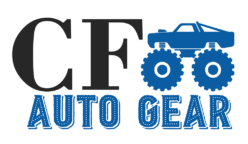Suspension systems are essential for both pleasure and safety in cars. Distinct sounds arise when something goes wrong, enabling perceptive drivers to spot possible problems. This article explains common suspension noises, what they mean, and why it’s critical to fix them right away for the longevity of your car.
Clunking Noises: A Red Flag
A clunking sound that is frequently audible during turns or bumps usually indicates a suspension system issue. Several things can cause this noise, including as end links, strut mounts, or worn-out or damaged bushings. Parts moving in unexpected ways due to worn or broken components might produce that unmistakable clunk. It’s important to look into the source of the noise as soon as possible because ignoring it can result in more serious mechanical problems and jeopardize vehicle safety.
Rattling Sounds: Loose Components
Another crisis indication from your car’s suspension could be a rattling noise. This noise frequently denotes broken or loose parts, including sway bar links or inadequately fastened shock absorbers. Debris trapped in the suspension area can also cause rattling and momentarily impair performance. When driving over uneven terrain in particular, drivers should listen out for this sound and get their car inspected to make sure everything is safe and working properly.
Grinding Noises: Serious Concerns Ahead
Grinds from the suspension system when turning or over bumps may signal major concerns. This sound is often caused by metal-on-metal contact from excessive wear. It may indicate wheel bearing, control arm, or strut failure. Grinding can make turning and steering harder, which is unsafe. A qualified technician must immediately inspect to prevent costly repairs and ensure safety.
Thumping Sounds: Impact Implications
Potholes and uneven surfaces can cause loud noises, which are typically indicative of a problem with suspension parts like shocks or struts. The noticeable thud that drivers experience can be caused by these parts wearing out and being unable to absorb impact enough over time. In addition to causing discomfort, damaged shocks or struts might result in a loss of handling capacity. Resolving thumping sounds quickly improves overall vehicle performance in addition to restoring ride comfort. For reliable solutions and expert care, consider visiting Auto Services in New Castle, PA.
Squeaking or Squealing: Grease Deficiency
Squeaking or screeching suspension joints or bushings often need more lubrication. Poor lubrication may increase friction and cause the noise. This issue may seem small, but ignoring it can lead to component wear and costly repairs. Maintenance inspections reduce noise and maintain lubricant levels.
Conclusion
Identifying and fixing suspension noises early can prevent more significant difficulties. Thumps, squeaks, rattles, grinds, and clunks indicate automobile system issues. Vehicle owners should monitor these signs and see a mechanic for diagnosis and repairs. Suspension health is crucial for vehicle longevity and safety.

